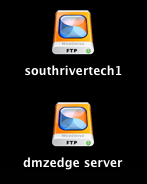When I was young, my mother always used to say, “Mind your P’s & Q’s.” While I knew what she meant (i.e., “behave yourself!”), I did not know the literal translation. Because language is alive and evolves over time, today we are left with only theories about the original meaning and origin of “Mind your P’s and Q’s.” Did it originate from 17th century bartenders minding their pints and quarts? Or, perhaps, from typesetters minding the placement of letters on printing presses? Today, no one really knows. But, while we do not remember the original meaning, we generally do understand the current meaning as it has evolved over time or, if not, we can look it up.
Thankfully, somewhere along the line, someone decided that there must be rules for meaning, punctuation, and grammar, even though these rules change and evolve as various uses become popular and generally accepted. And, while language is alive, it is also like a virus and, in fact, grammar conventions and colloquialisms spread like viruses amongst groups of people. We can consult, for example, the Chicago Manual of Style (CMOS), but sometimes a new general consensus forces style manuals to adapt and change. Even so, technical writers, such as myself, must rely upon style manuals for clarity and consistency. So, although I can spot a trend and realize that in the future a rule may be changed because general consensus, understanding, and general use has evolved, until my style authorities have spoken, certain popular punctuation or grammar conventions will remain incorrect.
This brings me to technical acronyms and initializations and the plural forms thereof. We, here at SRT, recently released version 9 of WebDrive, which includes enhanced support for Amazon S3 ACLs (Access Control Lists). During my research, I noticed that a very large number of websites referred to ACLs (plural) as ACL’s (possessive). I know this is wrong, technically, because CMOS tells me so! But it makes me wonder, with so many people adding “’s” to denote the plural form of acronyms or initialisms, how long will it stay wrong? Now, I am not the grammar police…oh wait. Yes, I am. So, while I realize that apostrophe rules can be a sticky wicket, for now, remember: If you have more than one, and you’re not denoting ownership or some possessive relationship, just add a lowercase “s” to your acronym or initialism (for example, DVDs, IDs, ACLs).
Of course, English being what it is (i.e., a language where flammable means the same as inflammable), you can expect a few exceptions to this rule.
The exceptions are:
- if the initialism or acronym contains periods (for example, “Ph.D.’s”)
- if the initialism or acronym ends in “s” (for example, “SOS’s”)
- If the initialism or acronym contains only one letter (for example, P’s & Q’s)
Next time, more on “The Viral Nature of Language,” or “No, lemmings don’t actually commit mass suicide.”

